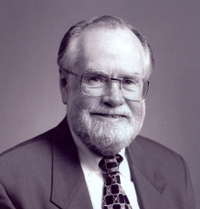This post questions the authenticity of the section in Paul’s writings where we read that “rulers of this age” crucified “the Lord of glory” followed by a passage said to be a citation of Scripture but that appears only elsewhere in the Ascension of Isaiah. The arguments for interpolation are derived from William O. Walker Jr’s chapter 6 of Interpolations in the Pauline Letters.
6 We speak wisdom among those who are perfect, although it is not a wisdom belonging to this world, nor to the governing powers [rulers] of this world [age], which are being brought to nothing,
7 but we speak God’s wisdom in a mystery, the hidden wisdom which God purposed before the worlds (or: ages), with a view to our glory.
8 This wisdom none of the governing powers [rulers] of this world (-age) has known. For if they had recognized it, they would not have crucified the Lord of glory.
9 But as it is written, “Things that no eye has seen and no ear has heard and that never entered into any man’s heart, all the things that God has prepared for those who love him.”
10 For to us God has revealed them through the Spirit. For the Spirit explores all things, including even the depths of God.
11 For who among men knows what a man is but the man’s own spirit within him? In the same way no one has recognized what God is but the Spirit of God.
12 We, however, have received not the spirit of the world, but the Spirit that comes from God, so that we may know what has been bestowed upon us by God.
13 And it is also of this that we speak, not in words taught us by human wisdom, but in words taught us by the Spirit, interpreting spiritual things in spiritual terms.
14 The unspiritual (“psychical”) man, however, does not receive the things of God’s Spirit. For they are foolishness in his eyes and he cannot recognize them, because they are (or: must be) spiritually interpreted.
15 The spiritual man, however, judges all things, but is not himself subject to anyone’s judgment.
16 For “who has discerned the mind of the Lord, so as to instruct him?” We, however, have the Spirit of Christ.
(Based on Conzelmann’s translation)

For readers impatient to get the main overview, here is a crude list of reasons some scholars have suggested the passage was not originally composed by Paul:
-
- numerous linguistic peculiarities seriously call into question Pauline authorship;
- the passage contradicts what Paul says elsewhere;
- the consistent use of ‘we’ and other features distinguish 2.6-16 form-critically from its immediate context;
- the presence of the passage in 1 Corinthians can plausibly be explained as an attempt by Corinthian ‘pneumatics’ to correct what they saw as Paul’s distortion of their position.
(Walker’s summary of Widman’s discussion: Widmann, Martin, “I Kor 2 6-16: Ein Einspruch gegen Paulus”, ZNW 70 (1979), pp. 44-53.)
Conzelmann writes in his commentary (p. 57),
The section 2:6-16 stands out from its context both in style and in content. It presents a self-contained idea, a commonplace of “wisdom.” It is a contradiction of his previous statements when Paul now announces after all a positive, undialectical possibility of cultivating a wisdom of the “perfect.”
Walker summarizes (p. 128) E. Earle Ellis’s view of the evidence for a non-Pauline origin:
-
- the shift from the singular … to the plural with the “we”, i.e. the pneumatics as the subject …
- the unity of the section independent of its context, and
- the considerable number of phrases not found elsewhere in the Pauline literature’.
On the basis of such evidence, Ellis concludes that “on balance, 1 Cor. 2.6-16 is probably a pre-formed piece that Paul has employed and adapted to its present context”.
Walker thus points out three possibilities:
- it was composed by Paul, using ideas and terminology taken from his opponents,
- it was composed by someone other than Paul but was included in the Corinthian letter by Paul, or
- it was both written and added to the Corinthian letter by someone other than Paul (not necessarily the same person, however).
Walker argues for #3. In doing so he addresses the counter-claims of Jerome Murphy-O’Connor who concludes that the passage is indeed by Paul (Interpolations in 1 Corinthians – link is to JSTOR article).
No Manuscript Evidence for Interpolation?
Some biblical scholars insist that we cannot make a serious case for interpolations unless we have anomalous manuscript evidence that physically demonstrates variations in editing lines. This is essentially an ostrich argument. The earliest manuscripts we have are those produced by the winners of the theological wars. We know editors fought their battles by modifying source texts. This state of affairs is not unique to the biblical texts since it is well-known that in other ancient literature interpolations were very common, and a problem that even ancient custodians (as in the Alexandrian Library) confronted. (See the Interpolations posts for additional discussion.)
Contextual Evidence for Interpretation
There is an abrupt shift at verse 6 Continue reading ““Rulers of this Age” as part of an Interpolation into 1 Corinthians”
